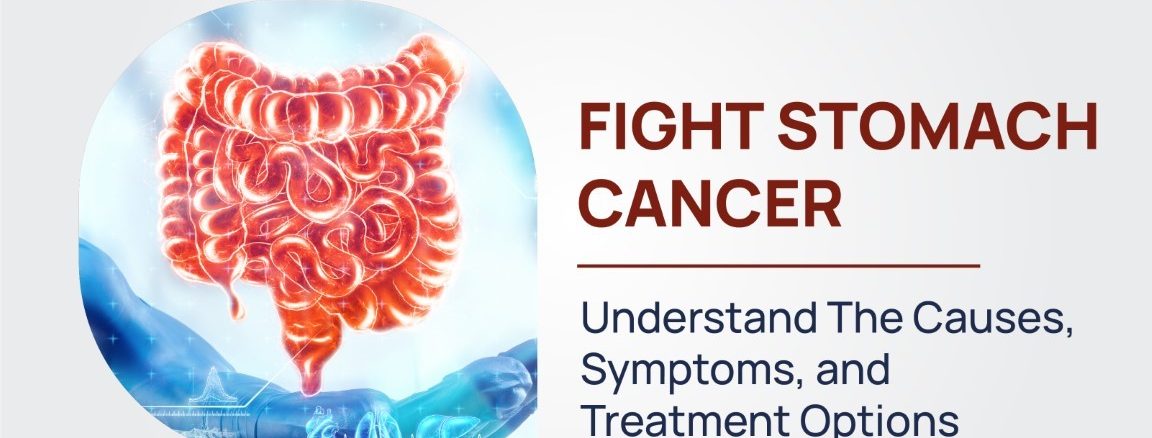What is stomach cancer?
Cancerous cells can develop in almost any portion of the body but the granulation tissue on the inner surface of the stomach is where they usually start and subsequently spread to other organs.
Causes:
When the DNA of your stomach cells is altered genetically, stomach cancer results. The timing of cell growth and decomposition is determined by DNA. A tumour eventually forms as a result of the mutation, which causes the cells to expand quickly rather than perish. Once healthy cells are replaced by cancer cells, your body may get infected and the disease may spread (metastasize).
Why the mutation occurs is unknown to researchers. Even so, a few things appear to make stomach cancer more likely.
Symptoms:
- Lack of appetite
- Loss of weight
- Abdominal pain
- Vague abdominal ache, generally above the navel
- Having a feeling of fullness after merely a little meal
- Acid reflux or indigestion
- Nausea
- Bloody or non-bloody vomiting
- Abdominal swelling or fluid accumulation
- Stool with blood in it
- Anaemia
The majority of these symptoms, like a viral illness or an ulcer, are more frequently brought on by conditions other than stomach cancer. Some of these symptoms may be caused by other cancers.
Diagnosis:
Minimally invasive endoscopic techniques enable a physician to view the stomach’s interior. They consist of:
The main procedure for detecting stomach cancer is an upper endoscopy known as an esophagogastroduodenoscopy (EGD). You receive a sedative before having an EGD operation. An endoscope is then inserted into your mouth which passes down your neck, into your stomach, oesophagus, and first section of the small intestine by the examiner. They look for anomalies such as tumours, ulcers, blockages, and inflammation. With the endoscope, he or she takes biopsies of aberrant tissue. The tissue is then examined in a lab to check for indications of malignancy.
Your gastroenterologist uses endoscopic ultrasound (EUS) to inspect your stomach and internal organs such your pancreas, liver, gallbladder, and bile duct. To find tumours and surrounding lymph nodes where the cancer may have spread, this test for stomach cancer employs sound waves. With the aid of EUS, your gastroenterologist can ascertain whether the cancer has progressed across your stomach’s various layers, staging the condition and modifying your treatment strategy.
Stomach cancer treatment:
In the context of cancer care, many medical specialties frequently collaborate for stomach cancer treatment.
The form and stage of the cancer, potential side effects, and patient’s general health are just a few of the variables that can affect the course of treatment. Stomach cancer treatment is frequently done with a mix of therapies.
As it provides the best opportunity for long-term survival, surgery to remove the tumour is often included in treatment, if it is possible. However, surgery could not be an effective stomach cancer treatment if the cancer has progressed far or if the patient is not in good enough health. Together with or in place of surgery, other therapies like radiation therapy and chemotherapy are frequently used in medical care. Additionally, certain cases may benefit from more recent therapies such targeted medication and immunotherapy.
RPS Hospitals provide the best cancer treatment in India. We are here to assist you and treat your illnesses. Contact us today.

